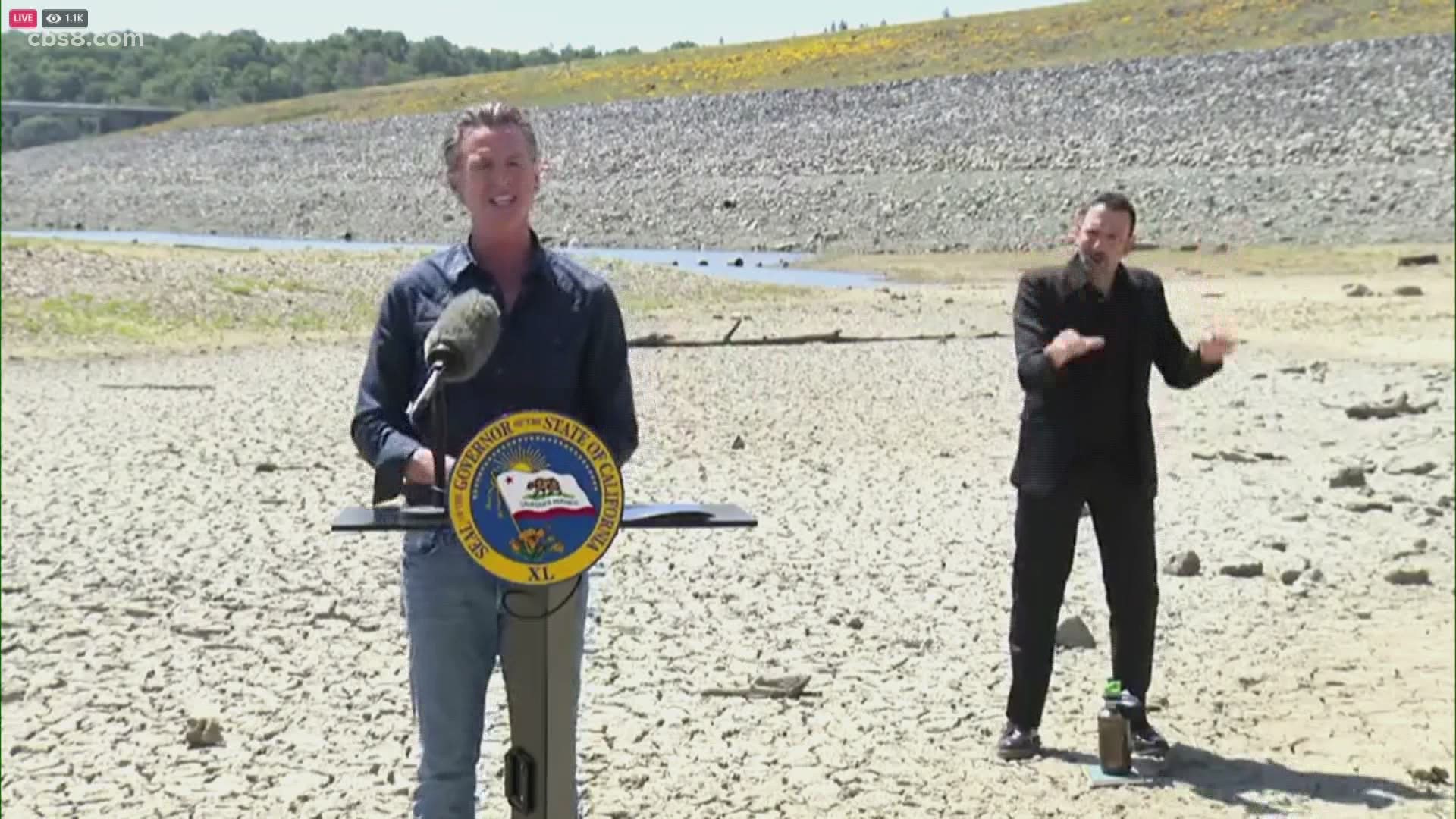MENDOCINO COUNTY, Calif. — After two years of well below average rain and snow, California is entering its long, dry season with little chance to see significant improvement until the next rainy season in October.
As of Thursday, April 22, 50% of the state is considered in extreme drought. 5% of the state is considered exceptional, the highest level of drought in California. During the peak of the last drought, 58% of the state was listed as being in exceptional drought.
Lakes and reservoirs remain low, with most well below average. Lake waters will rise with the spring melt, but not as much as a normal year because snowpack for most of the state is also well below average.
On Wednesday, Gov. Newsom traveled to Mendocino County, to discuss the state’s response to these continued dry conditions in California and how the state will support vulnerable communities.
The governor declared an emergency executive order in two Northern California counties in response to particularly bad drought conditions there. Wednesday’s announcement affects Mendocino and Sonoma counties. It comes as California is expected to face another devastating wildfire season after a winter with little precipitation.
The state Department of Water Resources says this is the fourth driest year on record statewide, especially in the northern two-thirds of the state. Newsom noted that three-quarters of the western United States are in what's called a megadrought.
Re-watch the event on the ABC10's Facebook page.
READ MORE FROM ABC10:
- Drought adds pressure on Central Valley farmers as other factors cause food prices to rise
- 5 things you need to know about federal drought aid in California
- 'Get ready' | Why Cal Fire is beefing up crews and calling them in earlier in the 2021 fire season
- Why it's time to prepare your home ahead of upcoming fire season
- Why Placer County wants people to sign up for emergency alerts ahead of wildfire season
- California slips further into drought status
Watch more from ABC10
Folsom Lake looks dry as drought conditions worsen in California

